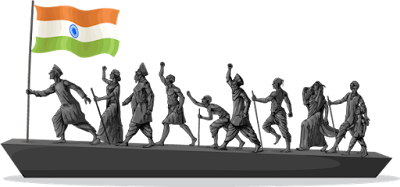 |
| Samuel Stokes. annithisweek.blogspot.com |
Being from Tamil Nadu, I bet, countless people like me have not heard about American Stokes' participation in freedom struggle, his protest against importation of British goods and his close contact with Gandhiji. Nor am I aware of his multi-faceted personality, social activities like rehabilitation of lepers, introduction of new agricultural techniques and apple trees, etc., suitable to the climate of that region.
 |
| Stokes in Himachal Pradesh. Rediff.com |
 |
| Mission church, Kotgarh, HM twitter.com |
His Indianised name is 'Satyanand' Stokes' alias Samuel Evans Stokes (16 August 1882 – 14 May 1946), born and raised in Philadelphia, Penn, USA and his father was a successful businessman, making quality elevators (lifts). It may be of interest to note that Stokes and Parish Elevator Company later merged with Otis Elevators. Graduated from Mohegan Lake Military academy in New York State in 1900, Stokes joined Cornell University. He was an active member of YMCA and took part in social service. He decided that social work was his calling and accordingly, aged 22 he left for India on 9 January 1904 on missionary work along with Dr. Carleton and his family, much to the dismay of his family who wanted him to look after the family business. He set his goal on something that would keep him happy and lead a contended life - an unexpected long journey that was going to get the best qualities out of him.
At Subathu, Shimla (now the capital of HM), Stokes worked at the leper colony run by Dr Marcus Carleton and took care of the patients' needs, including their emotion feeling of rejection by the society. Serving the poor and derelict appealed to his heart, and soul and to serve them better he had begun to learn a working knowledge of Hindi (local language) to deal with the natives and he was of great help to Dr. Carleton in his rehabilitation work. Doing a pious job quietly, he earned the trust of the local people who developed high regards for him. Being a Quaker, he took keen interest in spirituality and asceticism, finding satisfaction in simple life in a serene place like a Hindu hermit. Leading a simple life among the villagers at Subathu in the foot hills of picturesque Himalayas gave him happiness and satisfaction.
 |
| Quora |
A visit by the Archbishop of Canterbury to the leper colony encouraged him to form an order of monk wood to serve the poor and needy. However, after a couple of years, he withdrew his activities. As for his parents, they were quite happy that their son was held in great esteem in that part of India, doing a noble job and his real satisfaction was in his social and community work. To be identified with Indian people, he married a Rajput girl (named her Agnes) from a Christian family and she bore him five children. He was not happy the way the Christian missionaries were operating in India as they based their approach on western system and failed to teach religion and education in the context of Indian tradition and ethos. In this respect he was quite disillusioned.
 |
| American and India freedom fighter Stokes, his wife Agnes. Rediff.com |
 |
| American Stokes and others sachi.org |
 |
| Members of 4th generation (great-grandchildren) of Stokes.tribuneindia.com |
 |
| Subbash Chandra Bose. english.sakshi.com |
 |
| Rediff.com |
 |
| 123RF.com |
 |
| Prince of Wales on a visit to Patiala, Punjab India, 1922 Mid-Day |
Stokes’ trial evoked considerable interest in the media and was well covered in great detail by The Tribune . When Stokes was jailed for six months, The Tribune commented ''a grievous failure of justice". Equally furious and critical was Gandhi who wrote, "That he (Stokes) should feel with and like an Indian, share his sorrows and throw himself into the struggle, has proved too much for the government. To leave him free to criticize the government was intolerable, so his white skin has proved no protection for him…"
 |
| Satyanand Stokes. twitter.com |
Roughly nine months before India's independence in August 1947, Stokes died on 14 May 1946 owing to extended illness. That Satyanand Stokes's name is not in the list of many freedom fighters at a time when India was celebrating the golden jubilee of our Constitution is highly deplorable. It may be counted as an act of pure negligence on the part of Congress leaders who overlooked this great man's participation in freedom movement. However, we get a feeling of elation that Samuel Stokes, through his selfless and sincere services to the people of his region, has touched the soul and heart of the people there, thus establishing himself as a true Karmayogi - neither expecting accolades from his followers nor an award from the Indian government. Hailing from a rich American family, he could have chosen a cozy and comfortable life; but he preferred a simple non-materialistic life that made him happy. Indeed, a great man with real American spirits, upholding the virtues of people like Abe Lincoln, John Kennedy, Martin Luther King and a host of others.
To know the entire life story of Satyavati Samuel, read – AN AMERICAN IN KHADI: The Definitive Biography of Satyanand Stokes, by Asha Sharma.
http://www.rediff.com/news/special/the-american-who-fought-for-indias-freedom/20160809.htm
https://en.wikipedia.org/wiki/Satyananda_Stokes
Samuel Stokes who fought for India's freedom - first American arrested by the British
 Reviewed by Lancers
on
July 24, 2018
Rating:
Reviewed by Lancers
on
July 24, 2018
Rating:
 Reviewed by Lancers
on
July 24, 2018
Rating:
Reviewed by Lancers
on
July 24, 2018
Rating:




